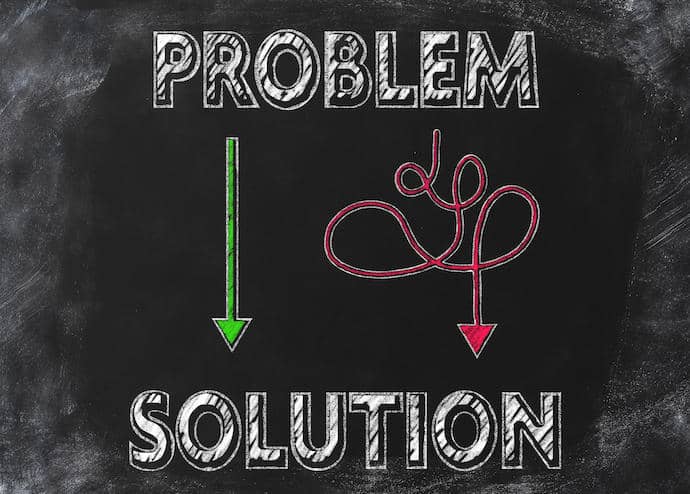The ongoing adoption of Cloud and the new normal of hybrid work has led organizations to accelerate improvements to their security architecture. Infrastructure leaders with SD-WAN deployments are increasingly adopting secure access service edge (SASE) that converges security and networking capabilities to optimize performance and deliver better security outcomes. However, they are challenged with aligning their SD-WAN to SASE initiatives . The lack of tight integration to security services limits their ability to deliver a fully converged SASE framework, resulting in increased security risks, network downtime, and added costs.
At the same time, the intent to provide a SASE solution has led customers to build a multi-vendor solution by patching disparate solutions, resulting in increased cost and complexity. This piecemealing approach impacts productive collaboration within networking and security teams and forces them to manage separate policy constructs and frameworks, resulting in operational complexity. To realize all the benefits of SASE, organizations require a reliable and seamless migration to a single-vendor solution that leverages a next-generation SD-WAN with native integration to cloud-delivered security services.
Your Checklist for Successful SASE Migration
Infrastructure leaders need to create a successful SASE migration strategy while reducing the risk of implementing a sub-optimal security framework. As part of evaluating SD-WAN and security services together, they should take into account the following capabilities that can significantly simplify their migration strategy, including
- Reliable Connections to Security Services: IT administrators are forced to manually create connections to multiple security services to deliver features like a secure web gateway (SWG), cloud access security broker (CASB) and Firewall as a Service (FWaaS) that add to operational complexity and costs. SD-WAN solutions should enable simplified and fully automated connections to such security services that provide redundancy and high availability.
- Guarantee Continuous Trust with Zero trust: Zero trust architectures traditionally implement an “allow and ignore” model that implicitly trusts applications forever once access is granted, resulting in malicious activity during an allowed activity. SD-WAN solutions should tightly integrate with security services that ensure Zero Trust with true least-privileged access and continuous trust verification for all users and applications.
- Connect to Security Services at Scale: Infrastructure leaders constantly struggle with the complexity of managing multiple points of presence (POPs) and ensuring they are strategically located to secure and optimize application performance effectively. Businesses should adopt SD-WAN that connects to security services that leverage global presence across all geographic locations at scale to deliver better uptime and lower latency for applications.
- Asset Application SLAs: Legacy SD-WAN solutions cannot automate or accurately select cloud gateway/POPs based on application and network SLAs that lead to suboptimal performance and potential outages.
- Support Flexible Consumption of Services: SD-WAN solution should offer a flexible consumption model that allows organizations to allocate bandwidth across branch offices from an aggregated pool seamlessly. This consumption model should seamlessly extend to security services for organizations building a SASE architecture, which can secure and deliver an improved user experience.
- Simplify Operations with Unified Policy Framework: Organizations trying to adopt SASE struggle with configuring, managing, and supporting separate policy constructs for networking and security. As a result, IT teams need to spend a significant amount of time correlating apps and policies across their network without a shared policy framework. As one of the key functionalities of SASE cloud-delivered services, SD-WAN, along with firewall, secure web gateways, CASB and ZTNA, should leverage the same policy framework and data lake, making it easier to deploy and most efficient to operate with fewer configuration conflicts.
Single-Vendor SASE solution
Organizations are looking to modernize and consolidate their networking and security infrastructures into a single service to simplify management and operations to provide the least privileged access to all applications and users.
Palo Alto Networks Prisma SD-WAN is the industry’s only next-generation SD-WAN solution that is autonomous, integrated, and secure. It natively integrates with Prisma Access and delivers best-in-class security on a global scale. Prisma SD-WAN enables customers to plan and migrate to their SASE initiatives with a single-vendor solution that delivers exceptional user experience and secure access anywhere.
Join us for SASE Converge 2022 by Palo Alto Networks, the industry’s leading conference on SASE. In this exclusive two-day virtual summit, you’ll hear from the brightest minds as they define the future of SD-WAN, Zero Trust Network Access and SASE.

Shankar serves as Director of Product Management for the Prisma SD-WAN product line. Prior to joining Palo Alto Networks, he was the Product Management lead for the multi-billion dollar Enterprise branch routing portfolio at Cisco. Shankar holds a Masters degree from the University of Colorado at Boulder.
